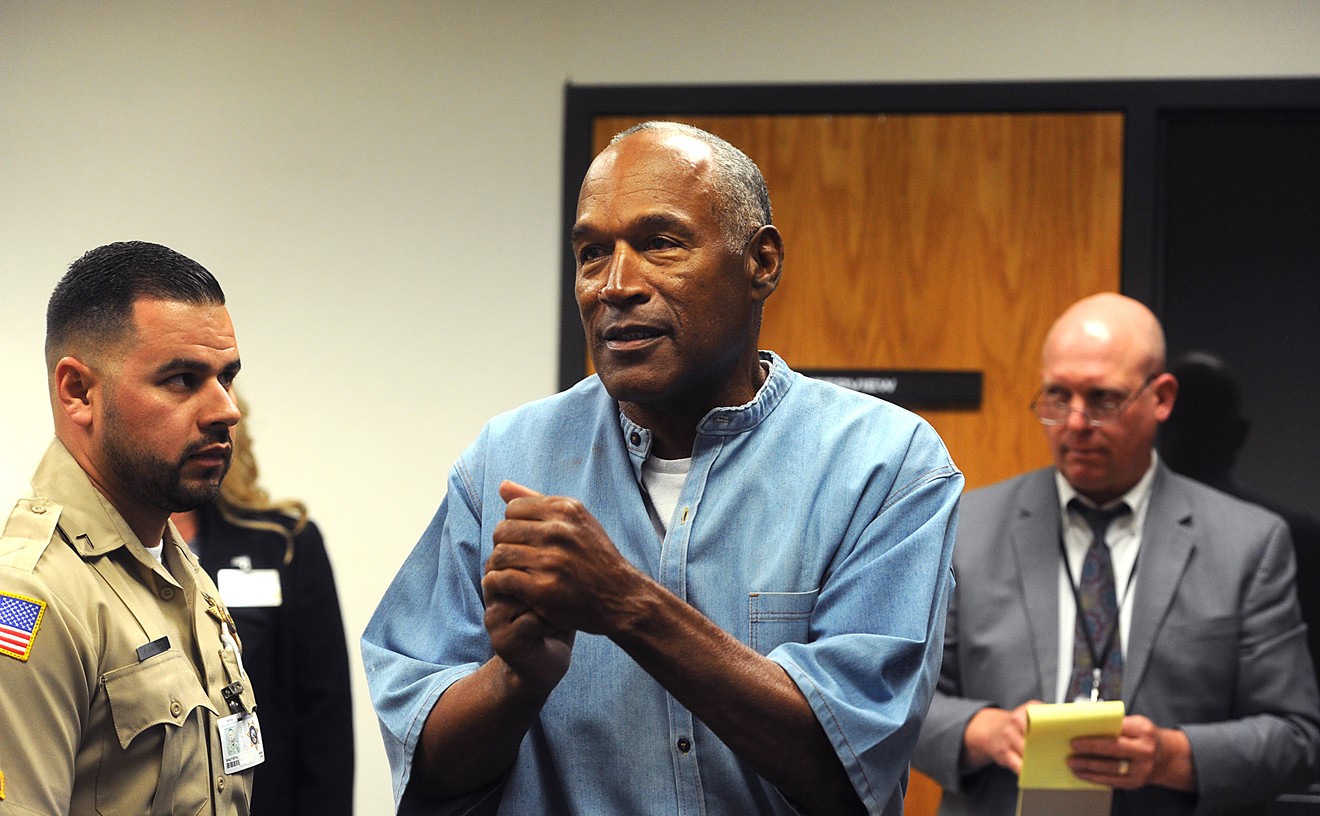She remembers the way he smelled. Groomed and clean. No cologne, no cigars. Just soapy. His beard was soft.
When she called home from her hotel room the following night, her daughter Maggie, then age 13, answered.
"Mom!" She sounded panicked.
"What?" Magda said, thinking, Christ, what now? Which one of the five kids has done what?
"Mom," Maggie said, "you were on TV kissing Fidel, and all these people are calling the house saying they want to kill you!"
"What?" Magda felt her hands go slick with nervous sweat. Now it was her turn to panic.
"Oh," Maggie added, "and Abuela is really pissed."
Magda Montiel Davis didn't know, couldn't have known, that when she had departed Miami for Havana in April 1994, her life would inexorably change. A safe if hectic existence balancing her immigration law work and family life would instead be dominated by kidnapping rumors, bomb threats, and
Twenty-one years ago, the kiss told much about Miami's past. Back then, Montiel Davis was an outlier — a liberal Cuban-American in a land of conservatives who failed in a run for Congress because she challenged the old guard. And her views on the incident and its implications — soon to be told in a memoir she finished just in time to see the American embassy reopen in Havana — may tell just as much about the Magic City's future.
"To say el
"Lo siento, señora, we don't have anything against you, so leave the building, because we're gonna bomb it."
tweet this
"One thing atop another" seems to be the pace at which Montiel Davis has always lived. Even her life before el
Her father, Jose Montiel, was
In 1971, Montiel Davis was elected Miss Miami Central High. She was the honor-roll captain of the cheerleading squad and voted Best All Around by her senior class.
"I got a lot of good things out of it," she says of Miami Central. "Academically? No. I think the last time I learned something was maybe tenth-grade world history." Instead, she learned something of the world's injustices through friendship. Montiel Davis' high-school best friend, Sandye McNeal, was black.
"Oh, we got shit," Montiel Davis says. "A supposedly white girl like me wasn't supposed to hang around with a black girl like her. We went through a lot together." The color of one's friends is no criteria for kudos, but that was the era of desegregation. Whites and blacks had long been separated, and Arthur McDuffie's death at the hands of four white Miami-Dade Police officers — as well as the rioting that followed — was just a few years in the distance.
Her politics
"The question to me is, why aren't people left of center?" says Montiel Davis, who identifies not as merely leftist but as "a socialist, at least." She rolls her eyes when asked why she came to think the way she does. "People ask, 'What happened to her?' as if I have some grave defect! To me, it's a given that there should not be such a disparity in economic and social status. That is what's unnatural."
She graduated magna cum laude from the University of Miami in 1974; in 1977, she finished law school at UM. Soon she married Paul Davis, a computer programmer; had a child; divorced; and married fellow attorney Ira Kurzban in 1989.
In 1992, she did a crazy thing, even by her standards. She made a bid for Congress as a Cuban Democrat, challenging the Republican incumbent, Ileana Ros-Lehtinen. Montiel Davis lost the race but won 33 percent of the vote, a triumph for a member of the most conservative Hispanic demographic in the United States.
(She was ahead of her time. The number of Cuban-American liberals has increased consistently since then. Between 2002 and the present, the quantity of self-described Cuban Democrats has more than doubled, and today there are as many of them as Republicans, according to the Pew Research Center. That has had significant implications on changes in American policy toward the island.)
Of right-wing Cuban expatriates, Montiel Davis says, "I never identified with that sort of mentality. They were — and so many are still — so far in the past."
Less than two years after her run for Congress, Montiel Davis was one of more than 200
On Tuesday, April 26, 1994, she flew out of Havana at noon and touched down at Miami International Airport 43 minutes later. While the plane taxied, a flight attendant flipped on the intercom. "Would all those who attended 'la
A handful of passengers rose. The flight attendant spoke again.
"Would Magda Montiel please step forward?"
The police were at the door to the plane. An officer escorted her to a rendezvous location, where her husband met her. Before parting ways, the officer locked eyes with Montiel Davis.
"You should hire a bodyguard," he said.
And it only got worse. She was interviewed by WPLG-Channel 10 newsman Michael Putney, who quoted her as saying that Castro had been good to his people and that he had "been a great teacher to me." In response, she said Castro had "thumbed his nose at the U.S., and they hate him for it... He stuck to his guns."
Today she winces at the memory. "In retrospect," she says, "I'm not sure I could have picked a worse turn of phrase."
When Montiel Davis summoned everyone to a staff meeting to address their fears, Lazara Pittman, a friend who shared her office, wailed, "Niños, Magda! Niños! Fidel sends 13-year-old boys out to mine fields with rifles this big!"
Pittman's hissy fit almost convinced her eight employees to walk off the job, but Montiel Davis managed to talk most into staying. Then, just as she sat down with her first client, she heard the receptionist scream, "Everybody, get out!" A caller, she said, had warned: "Lo
No bomb went off, but Montiel Davis assumed she'd lose most of her clients. Nobody wants a controversial lawyer, and though she gave them everything when she was on the clock, her own time was her own. "I wasn't going to go to weddings or bar mitzvahs," she says. But she'd counted on her staff's loyalty.
In her book, which is tentatively titled Kissing Fidel, she
The lights on the dial pad blink red, frantically. Which button to press next? I settle on the one at the far right. Befitting, I think, and half smile.
"You sucked the asshole of the biggest son-of-a-bitch dictator."
"Get ready,
Click after lesbian, degenerate, whore.
Click after TRRRRR-TRRRRR machine gun sounds.
A client calls. She just heard on one of the Miami-Cuban radio stations that my all-women staff resigned.
"It's not true," I tell her. Not all, I want to say. Just six of eight. Two haven't jumped ship yet. And none of them — though ex-employees now, loyal friends still — would ever speak openly to the media like that and risk sending my clients into a panic, risk me losing the law practice I worked so hard, so long to build up.
For the










